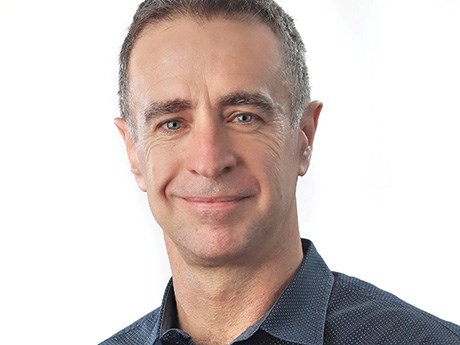Sudbury, Voisy’s Bay key to meeting increasing demand for nickel
Ricus Grimbeek, Vale’s new Sudbury-based chief operating officer, is optimistic about the nickel market and the role the company’s Canadian operations will play in meeting projected demand.
“There’s a bright future for everything linked to battery technology,” said Grimbeek. “There could be a big shortage of nickel in the next 10 years and Vale’s world-class Canadian operations are well placed to supply it.”
The company is busy working on its $760 million phase one Copper Cliff Deep project in Sudbury and gave the go-ahead for a $2 billion mine development project at its Voisey’s Bay operation in Labrador in June, but additional investments could be in the offing.
“We’re actively studying opportunities for further mine development in the Sudbury Basin,” said Grimbeek. “We produce a lot of class one nickel compared to some of our competitors and it’s class one nickel that goes into batteries… so we think it’s time to grow the business.”
As evidence of its commitment to growth, the company announced it has increased spending on surface and underground exploration in Sudbury from $22 million in 2017 to $42 million this year. Vale reports that it has 13 drill rigs are currently operating in the Sudbury Basin and 30 active exploration projects. Airborne surveying is also underway.
Currently, Sudbury operations don’t produce sufficient ore to keep its processing facilities full, requiring the company to buy concentrate from other sources.
“We want to be able to supply our processing facilities (with locally mined ore), so we definitely want to ramp up production,” said Grimbeek.
“Fabio Schvartsman, Vale’s CEO, wants base metals to account for 30 per cent of earnings before interest and taxes in the next three to five years. We’re now at 12 per cent, so that’s what we’re working towards.”
However, keeping costs in line will be important.
“We have to find a way to reduce our overhead and create more flexibility, so we have the ability to swing capacity in and out to be there to meet demand, but not oversupply the market. You can only do that if you have low overhead. If you have high overhead, you’re always stuck with running things flat out all the time.”
A South African trained mining engineer, Grimbeek joined Vale in March. He came to Canada in 2006 and spent three winters in the Northwest Territories as president and COO of BHP Billiton’s diamond operations. Transferred to Australia in 2009, he served as head of health, safety, environment and community for a little more than two years and then as president of the company’s aluminum operations. Following BHP Billiton’s divestiture of its aluminum operations to South 32, he served as president of the new company’s Australia division and, most recently as South 32’s chief technology officer.
Grimbeek is passionate about safety.
“I started off as a coal miner in South Africa and spent a few years working underground in production. That made me very quickly realize that I wanted to be part of creating a new industry because the way we were working and the safety and health risks we were exposing our people to were unacceptable. It wasn’t a place I would want my kids working in.
“We talk a lot about making safety a priority and being on a journey to zero harm, but being on a journey to zero harm means we would accept standards that allow us not to be at zero harm today. The journey mindset is one that I’m challenging.
“My philosophy is that you don’t manage safety. You manage work to get a safe result. We need to design, plan, schedule and execute work to get a safe, productive outcome.”
Another passion is technology.
“If you look at the industry today and you look five years from now, it’s going to be dramatically different,” he predicted.
Digital technology, automation, real-time data and artificial intelligence are transforming the mining industry, said Grimbeek. “You’re not going to have mines with people sitting around running siloed businesses and taking decisions based on last month’s information. They will not be able to survive in the next five to 10 years. You won’t be able to run a mine effectively using old methods.”
“One of the biggest challenges,” he said, “is that there are very few people in our industry who know how to lead an organization through this transformation. You can’t go out and pick someone who has already done it because it’s never been done…so we’re going to need a new breed of person to work in our industry with different skill sets. Most of those individuals will come from our current workforce, so we will have to start retraining our people.”
The taxi industry has been disrupted by Uber and the hotel industry has been disrupted by Air B&B. “The same is happening in our industry,” said Grimbeek.
Sudbury can play a key role in leading the reinvention of the industry, he noted.
“Sudbury should become the digital innovation centre for underground mining in the world and we need to get cracking to make that happen.
“If people want to know how to do digital mining underground, they should come to Sudbury. If you want your kids to go into mining engineering, they should come to Sudbury, and if you’re a startup company that wants to get your product developed, Sudbury is the place to be.”


